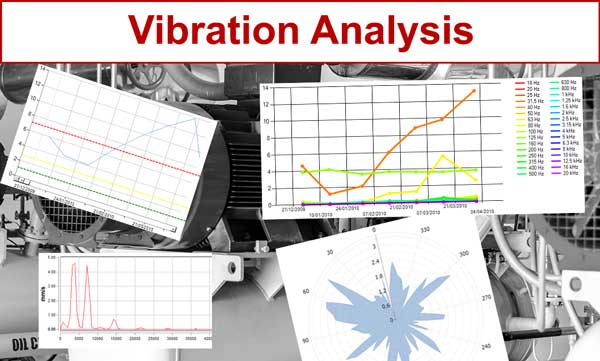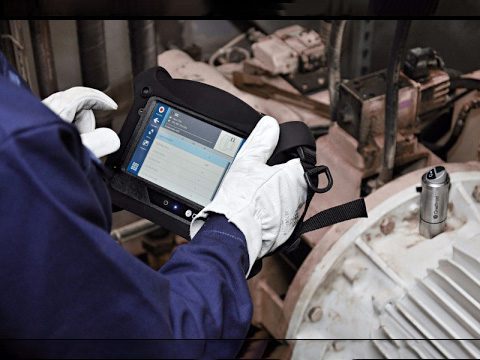Workshop Description:
This 3-day practical workshop provides a detailed examination of the detection, location and diagnosis of faults in rotating and reciprocating machinery using vibration analysis. The basics and underlying physics of vibration signals are first examined.
The acquisition and processing of signals is reviewed followed by a discussion of machinery fault diagnosis using vibration analysis and rectifying the unidentified faults. The latest approaches and equipment used together with current research techniques in vibration analysis are also highlighted in the workshop.
The training component of the workshop will be in preparation to those who plan to take the Level 1 Vibration Analyst Certification exam. The Vibration Analyst Certification uses body of knowledge compliant with ISO 18436-2 and is enhanced by a job-task analysis conducted by the accredited certifying body.
ISO 18436-2 specifies the general requirements for vibration analysis personnel who perform machinery condition monitoring and diagnostics of machine. Certification to this standard will provide recognition of the qualification and competence of individuals to perform machinery vibration measurements and analysis using portable and permanently installed sensors and equipment. ISO 18436-2:2003 covers certification program that is based on the technical areas discussed herein.
Workshop Learning Objectives:
When you have completed this workshop, you will be able to:
- Understand the basics of vibration measurement
- Demonstrate the basics of signal analysis
- Understand the measurement and the characteristics of vibration signals
- Use data acquisition equipment for vibration signals
- Apply vibration analysis for different machinery faults
- Apply specific techniques for pumps, compressors, engines, turbines, and motors
- Apply vibration-based fault detection and diagnostic techniques
- Diagnose machinery related problems with vibration analysis techniques
- Apply advanced signal processing techniques and tools to vibration analysis
- Detect, locate, and diagnose faults in rotating and reciprocating machinery using vibration analysis techniques
- Identify conditions of resonance and be able to rectify these problems
- Apply basic allied predictive techniques such as oil analysis, thermography, ultrasonics, and performance evaluation

Workshop Methodology:
Pragmatic. Based on research content a real-life experience of the facilitator, the course materials and concepts can be implemented as soon as participants return to the workplace.
Participative. This workshop is designed to be participative and interactive in nature. Training jig and hands-on training on a vibration analyzer contribute to the learning process.
Solution Oriented. The hands-on experience and consultative sessions provide a unique forum to address chronic challenges and develop strategies that maximize returns.

Workshop Course Outline
Day 1:
- Maintenance Practice
- Condition Monitoring Technologies
- Principle of vibration and its basics
- Vibration measurements concepts
- Transducers
- Velocity sensor, Accelerometer sensor , proximity probes
- Selection, location and mounting
- Know the difference of vibration units
- Introduction to time waveform and spectrum
- Data Acquisition
Day 2:
- Routes
- Signal processing
- Vibration Equipment- Portable and online system
- Vibration Analysis
- FFT Spectrum
- Time waveform
- Enveloping (demodulation), peakvue, spike energy
- Phase analysis
- Introduction to orbit analysis
Day 3:
- Resonance-Introduction
- Impact Testing (Bump Test)
- Diagnosing common fault condition
- Unbalance, misalignment, mechanical looseness, resonance, belt problem, electrical problems, rotor rub, bearing and gear damage etc.
- Corrective Action
- Acceptance Testing
- Setting alarm Limits
- Review ISO Standards
- Documentation & reporting
o
